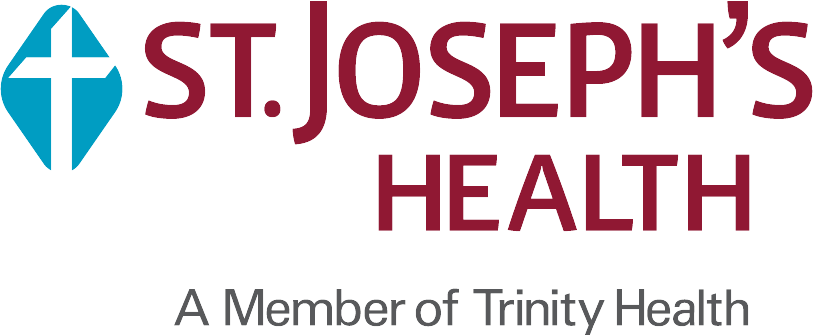Inactivity in Winter Leads to Heart Risk in Spring
February 1, 2017St. Joseph’s Offers Health Tips during Heart Month
Syracuse, NY (February 1, 2017) – In regions like Central New York that experience extreme weather changes, many people are less active during the colder months – and eager to become active again as soon as the weather warms up. But this abrupt change in physical activity can lead to significant heart health issues, including heart attacks.
February is recognized nationally as “American Heart Month.” St. Joseph’s Health is sharing heart health tips and placing special emphasis on increasing awareness of this important issue regarding activity levels during winter.
A prime example here in Central New York: avid golfers who don’t play during the winter, and then head right to playing a full 18 holes in the spring.
“Golf courses are common places for heart attacks,” said Mark Charlamb, M.D., cardiologist with St. Joseph’s Health. “And not every golf course is equipped with a defibrillator or trained staff, which increases the time it takes to get help.”
The American Heart Association explains that an automated external defibrillator (AED) is a lightweight, portable device that delivers an electric shock through the chest to the heart. The shock can stop an irregular heart rhythm and allow a normal rhythm to resume following sudden cardiac arrest. Sudden cardiac arrest is an abrupt loss of heart function. If it’s not treated within minutes, it quickly leads to death.
What You Can Do
As the top hospital for cardiovascular care in Central New York, St. Joseph’s Health offers the following tips to help golfers and all Central New York area residents stay active and healthy during the winter:
- The best thing you can do for your health is to stay active. How you move is up to you. Some suggestions for winter activity include taking the stairs instead of an elevator, walking inside the mall in the morning or at lunchtime, helping with household chores such as vacuuming, an hour of bowling or ping-pong, using hand weights at home or a full work out at the gym.
- Make sure you are getting all of the right nutrients for heart health, including fiber, omega 3 fatty acids, and berries rich in anti-oxidants, among others; as well as keeping sodium intake under 2,000 mg per day, and limiting alcohol consumption.
- Manage stress, hostility and depression.* The American Heart Association has shared that stress may affect behaviors and other factors that increase heart disease risk, such as: high blood pressure and cholesterol levels, smoking, physical inactivity and overeating.
- Avoid smoking. This includes taking steps to quit smoking, like enlisting the help of your doctor, tobacco cessation resources from St. Joseph’s Regional Center for Tobacco Health Systems, and the New York State Smokers’ Quitline; or limiting your time around others who smoke.
- Know your family’s history with heart disease. The risk of heart disease, as well as the risk factors that contribute to heart disease, are both strongly linked to family history. Talk with your family to understand whether anyone has suffered from heart disease, and make sure to tell your doctor.
* The exercise that St. Joseph’s recommends for heart health can also help manage stress.
Signs and Symptoms of Heart Attacks
Regardless of an individual’s activity level during the winter, it is important for golfers and people of any age who participate in similar activities to be familiar with the signs and symptoms of heart attacks.
St. Joseph’s shared the following signs and symptom of a heart attack:
- Chest pressure, fullness, squeezing pain in the center of the chest and spreading to the neck, shoulder or jaw
- Pressure may radiate to the arms, most frequently the left arm
- Lightheadedness, fainting, sweating, nausea, or shortness of breath
- Lower chest discomfort, upper abdominal pressure, back pain, or unusual fatigue
These symptoms may fade, but then come back. So it is important to take action immediately upon the first sign of a heart attack. Additionally, the symptoms of a heart attack may occur hours or even weeks before the actual heart attack occurs. If you or someone you know experiences any of these symptoms, call 911 immediately. Every second counts.
To learn more about heart health, visit www.sjhsyr.org/cardiac.
About St. Joseph’s Health
St. Joseph’s Health is a non-profit regional health care system based in Syracuse, N.Y., providing services to patients throughout Central New York and northern Pennsylvania. From primary to specialty to home care, to our Magnet-recognized hospital, and in collaboration with our community partners, St. Joseph's Health is advancing the health of the communities we serve through an expanding range of healthcare services to ensure our patients achieve optimum long-term health. Ranked by Consumer Reports among the top 15 heart surgery centers in the country, U.S. News “Best Regional Hospital” and a 15-time winner of the National Research Corporation Consumer Choice award, St. Joseph’s is widely recognized for quality, value and delivering the highest patient satisfaction. St. Joseph’s Health is affiliated with Franciscan Companies and St. Joseph’s Physicians and is a part of Trinity Health.
# # #
